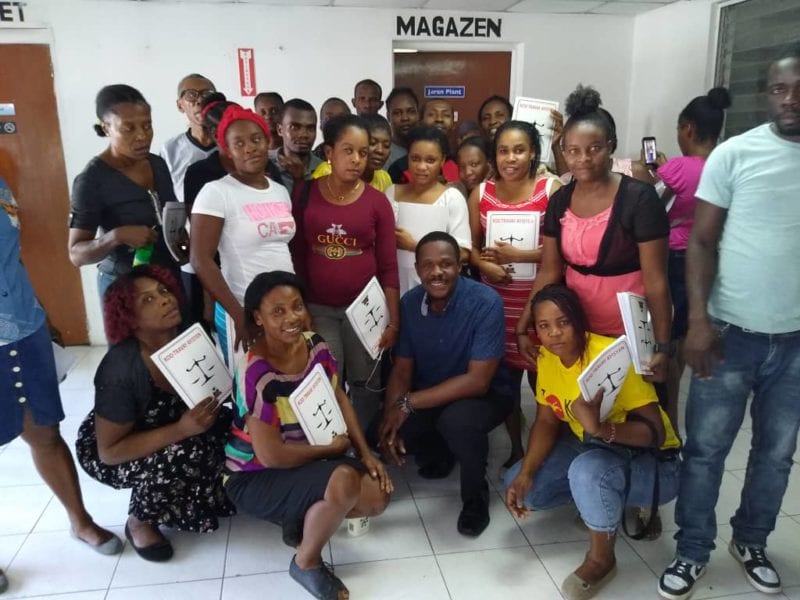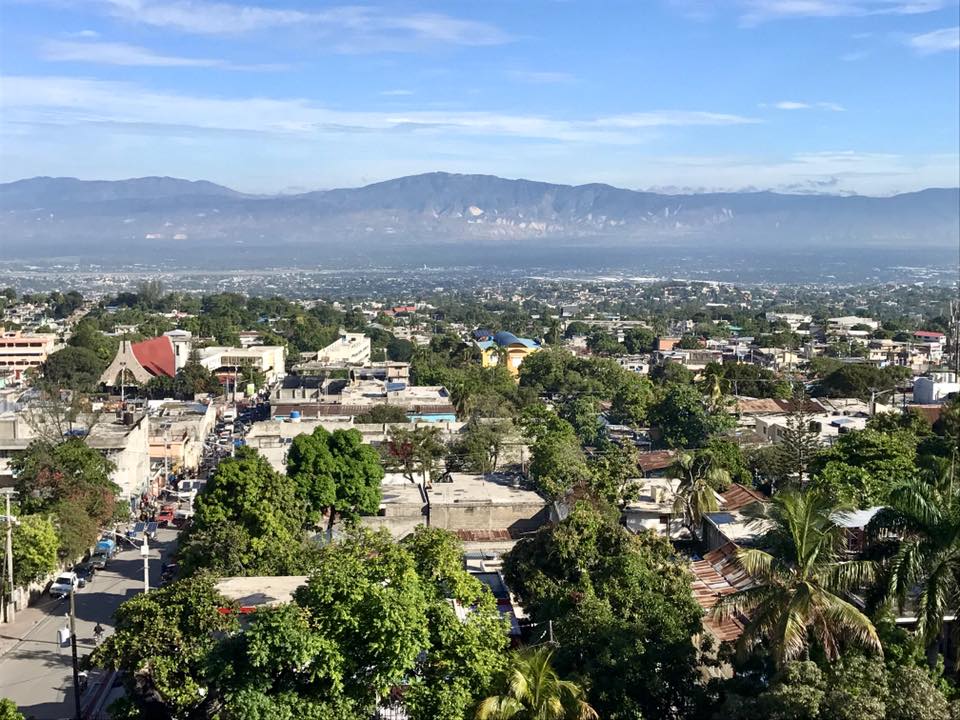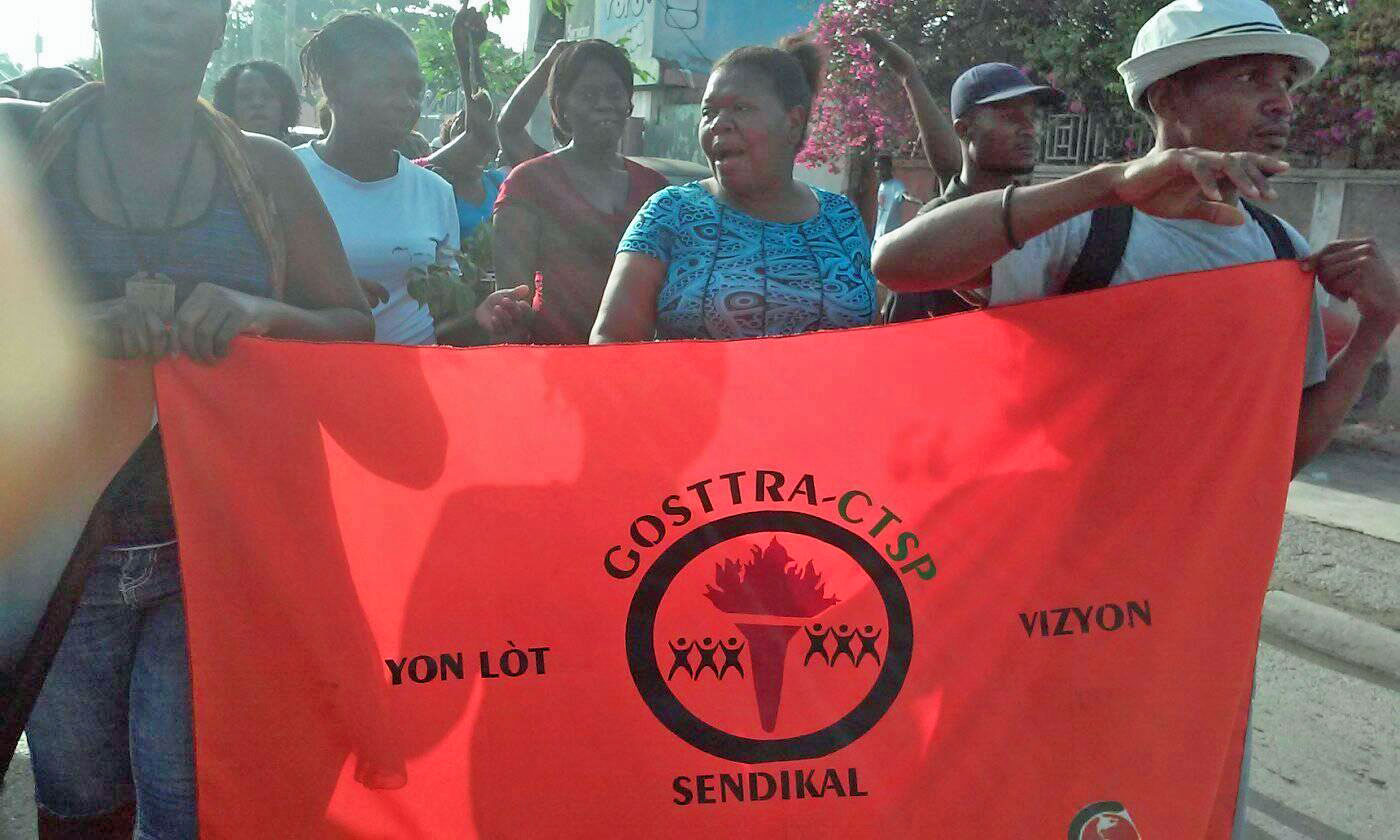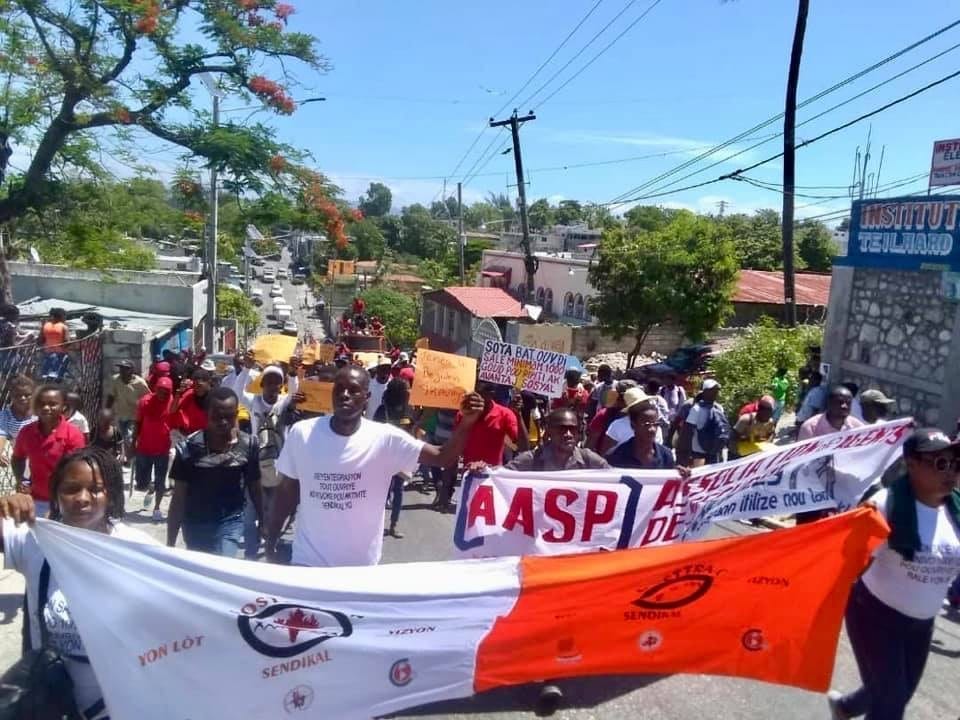Haiti remains in the midst of multiple crises as the country grapples with the question of who will lead the nation in the aftermath of the assassination of President Jovenel Moise. Most recently, the dramatic rise in the cost of living has led workers to demand an...

In Haiti’s export apparel industry, the Solidarity Center joins with unions to educate workers about their rights under national and international labor laws. Credit: Olton Dorvelus
Haiti faces overlapping economic, political, and humanitarian crises, including severe political instability, gang violence, natural disasters, food insecurity and forced migration. Workers experience the collapse of government in their daily interactions with the institutions charged with enforcing labor rights or providing social services.
Gang violence and fuel shortages prevent workers from getting to work and hamper the delivery of materials to factories. After paying a significant portion of their wages for transportation, and enduring a dangerous journey, some workers are sent home without pay because the factory did not receive the materials needed for production.
In this context, garment workers struggle to make ends meet. The minimum wage in the garment sector is 685 gourdes ($5.36) per day. Solidarity Center studies repeatedly have demonstrated the daily minimum wage is far less than the estimated cost of living in Haiti. While the garment sector remains Haiti’s largest source of formal employment, significant job losses have left most garment workers facing diminished working hours or layoffs, threatening their ability to provide for their families. The reduction of full-time jobs also has reduced union membership, thereby threatening the ability of unions to negotiate better working conditions. Notably, there is only one collective bargaining agreement in the sector.
Despite the recent contraction of the garment sector, it remains one of Haiti’s fundamental pillars of economic growth and formal employment. With greater capacity to hold employers and government accountable to respect labor rights in the garment industry, garment sector unions contribute to creating a culture of accountability, justice, and the rule of law— critical elements for fostering democracy and enhancing the culture of peaceful conflict resolution in a country riddled with political fragmentation and violence
Haiti Garment Workers Negotiate Landmark Health Payment
Garment workers and their union in Haiti are hailing a landmark settlement with a factory in Port-au-Prince that provided a total of $15,480 in back pay to 1,200 workers. The compensation covers 20 percent of the amount the employer deducted from workers’ paychecks...
US-Haiti Trade Pact Renewal Must Address Worker Rights
As the U.S. Congress considers renewal of the Caribbean Basin Trade Partnership Act (CBPTA) for Haiti, labor rights provisions must be enforced for trade benefits to reach 57,000 Haiti garment workers, says Solidarity Center Americas Regional Program Director Lauren...



